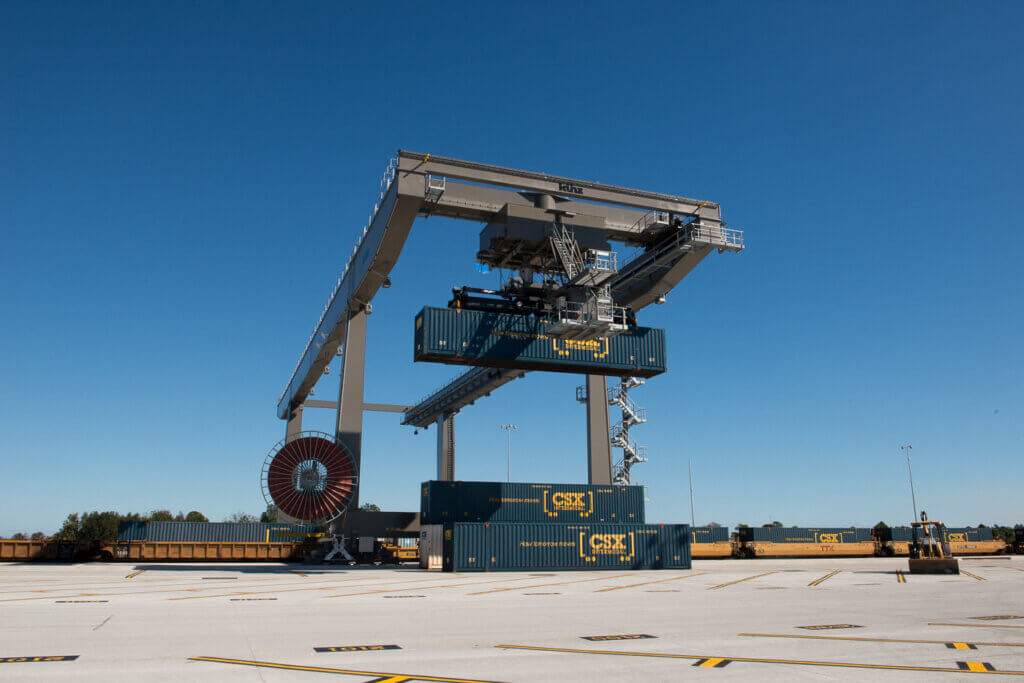CFDC and Duke Energy Representatives Lead State’s Economic Development Council
Two people involved in economic development in Central Florida are leading the state’s premier membership organization for economic development professionals as it navigates the post-pandemic world and fights to restore the state’s Qualified Target Industry Tax Refund program.
Marc Hoenstine, director of economic development for Duke Energy Florida, was elected chair of the Florida Economic Development Council (FEDC), and Jennifer Taylor, vice president of business development for the Central Florida Development Council, was elected chair-elect. They moved into their positions in June 2020 and will serve one year.
“Marc and Jennifer have extensive and celebrated careers in economic development,” said Beth Cicchetti, FEDC executive director. “They are masters at representing the competitive assets of their markets to C-suite decision-makers who are looking for new locations.”
Hoenstine has contributed to forums in the east central region and Taylor in the Tampa Bay Region, she said. “These are two very large markets for FEDC and for Florida. It is no wonder that their peers have elected them to lead their professional association.”
Taylor, a member for more than 20 years, has served as Tampa Bay’s regional director, chaired the fund-raising committee for the annual conference for three years and chaired the annual conference for three years.
“Under her leadership, the attendance of the conference has grown year over year. She took special steps to pivot to a series of virtual engagements when the conference had to be canceled due to COVID-19,” Cicchetti said.
Taylor said there are many reasons to consider membership. “Education, advocacy and connections are the three pillars of FEDC’s foundation, and FEDC provides numerous opportunities for economic development professionals to advance in their profession. As vice chair, I look forward to working with an incredible team of leaders who dedicate themselves to advancing economic development in the state of Florida.”
The FEDC and its more than 400 members — those involved in economic development, workforce, education, utilities, transportation and more — advocate for the state’s business community to provide companies with a competitive advantage. They provide leadership and vision to those involved in economic development in Florida, along with keeping them abreast of changes in the industry.
“Jennifer is an economic development leader in Polk County and our region and we are so proud to she is sharing her expertise on the state level,” said Sean Malott, President & CEO of the CFDC. “We also work with Marc and know he’s a leader who has proven he can tackle any issue. We are excited for both of them.”
Advocating for the State
Hoenstine said advocacy is the most important part of the FEDC’s mission, according to a recent survey of members. And right now, that means focusing on reinstating the Qualified Target Industry (QTI) Tax Refund program, which sunsetted in June 2020 due to non-renewal by the Legislature.
QTI is a program designed to offer incentives in the form of tax refunds to industries in 10 categories, including aviation, manufacturing and life sciences. Since 2014, more than 300 businesses have participated in the program, creating nearly 22,000 jobs. Businesses pay the taxes, then get refunds from the state when they meet certain goals, such as creating at least 10 full-time jobs and paying at least 115 percent of the private-sector annual average wage. In addition, local communities must match 20 percent.
The goal is to help diversify Florida’s economy, making it less reliant on tourism, agriculture and construction. “We have already begun to hear from site selection consultants who may not include Florida in searches for their client’s projects due to the lack of Florida incentives and the perception that Florida is not aggressive enough,” Hoenstine said.
“FEDC is creating an incentives task force to address this issue and to speak to the value programs like QTI bring to the state’s efforts to attract new jobs and capital investment. Reinstituting QTI or a replacement for QTI may be one solution.”
Polk County has had its own incentive program and was “ahead of the game,” he said. Other counties are now developing their own local incentives.
Partnering with Enterprise Florida
Hoenstine also said Enterprise Florida Inc. (EFI), a public-private organization that brings business and government leaders together is critical to economic development success — and “FEDC must stress (its) value in bringing jobs and prosperity to Floridians.”
Taylor said she talks almost daily to the EFI business development team, and the CFDC has had a long, positive working relationship with its state counterpart.
“They are an extension of the CFDC team and are a source of new leads for us. They know Polk County very well and seek opportunities that they believe would be a good fit for our community. The CFDC regularly invites them to visit our community to tour the many assets that make Polk County a contender for new projects coming to the state.”
The Year Ahead
Hoenstine and Taylor served on the FEDC’s Resource Development and Organizational Capacity Committee, which benchmarked FEDC against many Southeastern peers. Cicchetti and Taylor said it also:
- Conducted two-member surveys.
- Assessed best practices of competitive state economic development organizations.
- Created a 501(c)3 Education & Research Foundation to help FEDC grow.
- Determined funding needs to execute a strategic action plan, which developed into Strategic Doing.
Hoenstine said FEDC members have “guided the FEDC Strategic Doing initiative designed to build a method for continuous improvement of the organization and to expand and deepen FEDC’s value to members.”
Taylor added: “Strategic Doing teaches people how to form collaborations quickly, move them toward measurable outcomes and make adjustments along the way. In today’s world, collaboration is essential to meet the complex challenges we face, such as the COVID-19 pandemic.”



